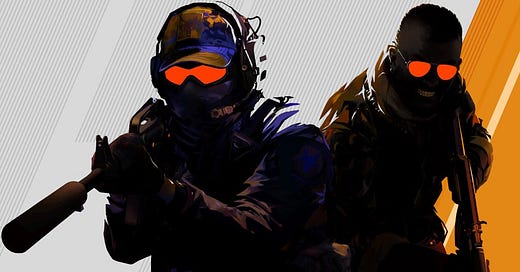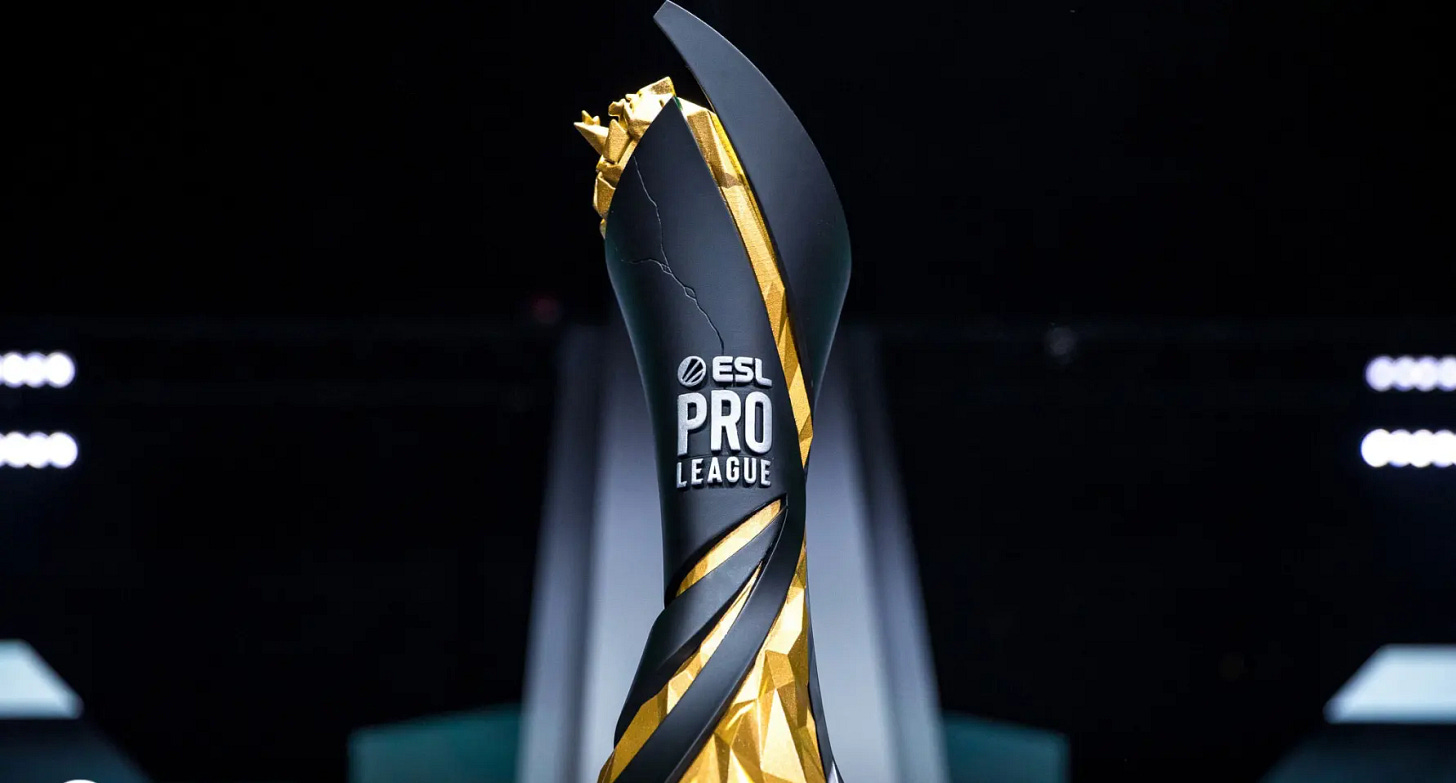Exclusive: Valve Push Back On CS:GO “Partnered Leagues”
Valve openly expressed their desire for change to the CS:GO ecosystem in meetings at the Paris Major
Valve have requested structural changes from CS:GO’s two largest tournament organisers according to multiple sources familiar with the discussions. Specifically they have notified the parties about their wishes to change the way their current leagues operate in conjunction with esports organisations that have paid for a theoretically permanent place in their tournament circuits.
With the two biggest tournament operators in CS:GO, ESL and BLAST, both utilising a system where “partnered teams” pay to remain a permanent fixture of their respective circuits it has stifled competitive opportunities for teams with less spending power. This way of doing things has also skewed world rankings to the point of being largely meaningless once you step outside of the top ten as many teams don’t even have the opportunity to compete against others that are ranked higher than them. This separation between the haves and the have-nots has led to both tournament operators being criticised by affected teams and fans alike.
The current landscape of competitive CS:GO has not gone unnoticed by Valve. During the recent BLAST.tv Paris CS:GO Major their staff travelled to the event to hold discussions with executives from both BLAST and ESL in Paris about some of their plans for the upcoming release of CS2. During those meetings Valve voiced concerns about the current state of the competitive landscape and said that something had to be done about the current partnered leagues if they wanted to be issued with a tournament license for CS2.
“The final form of the change is not set in stone yet” A source familiar with the discussions told us “but basically Valve want a more open type slot allocation for third party events where even smaller teams get a chance to participate even in invite heavy tournaments. The way it stands now partner teams were guaranteed slots at their events even if their rankings were low while non ranked partner teams were ignored even if they were ranked higher.”
Another source familiar with the discussions said that ESL were looking to bring team owners to the upcoming Gamers8 event in Riyadh where the ESL FACEIT Group will be “producing” a CS:GO event with a $1,000,000 prize pool in August.
“They want to hold a meeting and find a workaround for this” they explained. “Ideally they want a new structure that will maintain the status quo but also get Valve’s approval.”
Valve have taken multiple stances against CS:GO “exclusivity” deals in the past. In 2015 ESL attempted to negotiate such a league while Valve were on their annual holiday, however the secret meeting, held within Twitch’s offices, was exposed and the plans never came to fruition. By 2016 FACEIT, who at this point were staunch rivals of ESL, created their own partnered league in the form of the Esports Championship Series.
The same year ESL repurposed parts of their earlier exclusivity project and founded the mostly forgotten World Esports Association (WESA) which brought together many of the same teams who had been part of the prior negotiations. Push back against this saw the creation of the Professional Esports Association, which was a bid to create a league structure solely for North American organisations. However that fell apart when players collectively refused to agree to exclusivity as they wanted to participate in ESL tournaments.
In 2019 Valve explicitly addressed this matter in a blog post where they wrote the following:
Exclusivity
Recently there have been steps toward a broad form of exclusivity where teams who compete in a particular event are restricted from attending another operator’s events. This form of team exclusivity is an experiment that could cause long-term damage. In addition to preventing other operators from competing, exclusivity prevents other events from keeping the CSGO ecosystem functioning if an individual event fails. At this time we are not interested in providing licenses for events that restrict participating teams from attending other events.
At the time that was published BLAST had entered into discussions with organisations about the creation of a league where all teams were business partners called BLAST Premier. Announced in December of 2019 it featured twelve teams that were able to pay the entry fee which were MiBR, Na’Vi, Astralis, Team Liquid, FaZe, Vitality, Ninjas In Pyjamas, 100 Thieves, OG, G2, Evil Geniuses and Complexity.
Behind the scenes ESL were also engaged in another attempt to create a “partnered league” as part of something called the Lanxess Agreement. A draft of that would be publicly leaked showing that there were clauses in the contract that would enable ESL to enforce exclusivity against any tournament mimicking the ESL Pro League format:
“Beginning January 1st 2020 all member teams of the Pro League shall not play in other Counter-Strike leagues, this means non Valve sponsored competitions where the first day of competition (excluding qualifiers) and the grand final day are more than fourteen (14) days apart, besides Pro League.”
This language was eventually softened but the core of the agreement went on to become the widely publicised Louvre Agreement, which ESL heralded as “historic,” in February 2020. The teams who signed were Astralis, Complexity, Evil Geniuses, ENCE, FaZe Clan, Fnatic, G2 Esports, Mousesports, Natus Vincere, Ninjas in Pyjamas, Team Liquid, Team Vitality and 100 Thieves, with the last in the list eventually exiting CS:GO not long after. It is worth remembering that ESL essentially took away Pro League slots from teams who had qualified, namely HAVU, Team Spirit, Riot Squad and Triumph, prior to selling them to partners.
BLAST would see some changes with BIG joining in 2021 and Heroic acquiring MiBR’s slot in 2022 and ESL’s Louvre teams would expand when the contract was re-signed until 2025 when they added Furia and BiG.
While the existence of two robust tournament operators in the scene has given the illusion of an open circuit, increasingly it has become clear that many teams who are capable of competing at the highest level have been kept out of the competitive calendar for no other reason than lacking the capital to “buy in.” While this has been overlooked for more than three years the realities of franchise leagues by another name are starting to become glaringly apparent especially in light of the recent major where many “underdog teams” enjoyed placements above the same organisations participating in the partnered circuits.
BLAST’s circuit in particular heavily favours its partnered teams to such a degree it’s nigh on impossible for non partnered teams to earn enough points to be included in the marquee events. They were not even free from public criticism about this system at even their own Major. ENCE captain Marco "Snappi" Pfeiffer pointed out, not for the first time, that his team had proven themselves competitive enough to be included in a greater capacity in a post match interview.
While Valve stepping in is likely to be welcomed by the fans and proponents of the open circuit system Counter-Strike has enjoyed for the best part of two decades, organisation owners who have paid millions to be part of these closed circuits are less likely to be happy at the prospect of significant change. One of the sources from earlier added that “the reason the team owners haven’t publicly complained yet is they are worried about what this information being public would do to their share price. These slots are assets.”
That fact is unlikely to move Valve whose views on this matter have been stated both privately and publicly down the years. In that sense the release of CS2 could be a fresh start in more ways than one.







Hope this'll light a fire under teams that have gotten too complacent. Also hopefully something will be done to lighten up the oversaturated schedule.
ESL was still relatively good compared to Blast, Blast is nearly fully closed down as mentioned in the article. While both need change, improvements, Blast need way more improvements than ESL does. I’m glad this will be changed, Blast clearly overstepped